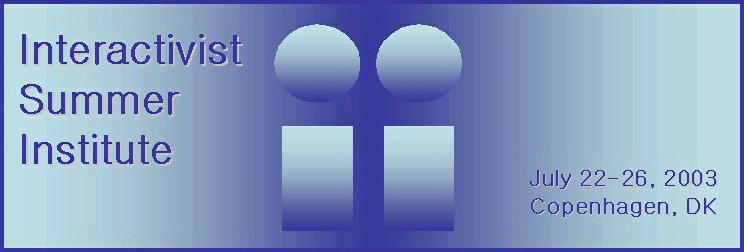
Interactivist Summer Institute
July 22 - 26, 2003
Copenhagen
Cognition viewed as a non-equilibrium optimizing process
Wolfgang Tschacher
University of Bern – Psychiatric Services
Laupenstrasse 49
Switzerland / CH - 3010 Bern
Phone/fax: +41 31 3876164 / +41 31 3829020
tschacher@spk.unibe.ch
In trying to transcend the information processing paradigm in cognitive science, the notion of cognition as emerging from a self-organizing complex system is advocated. It is argued that the relationship of a complex cognitive system with valences of the environment (Gibson's affordances) is analogous to the relationship of any self-organizing complex system with its non-equilibrium control parameters as described, for instance, within the framework of Haken's synergetics. Pattern formation in a self-organizing system tends to reduce the system’s distance from equilibrium (sometimes called exergy). Thus, self-organization is an optimizing process. If this property — the "intention" to achieve optimality — is regarded in the context of cognition, a hypothesis concerning intentionality and consciousness of cognitive systems results. This optimality function inherent to self-organizing systems can be proposed as a third-person explanation of the intentionality and purposiveness of volitional cognitive acts. From a first-person perspective, the conscious experiences of qualia such as intentions, pain, or color perception, are indicators of such phenomena of cognitive self-organization. This approach is illustrated by results of a study focussing on gestalt perception in patients with schizophrenia and control subjects.
